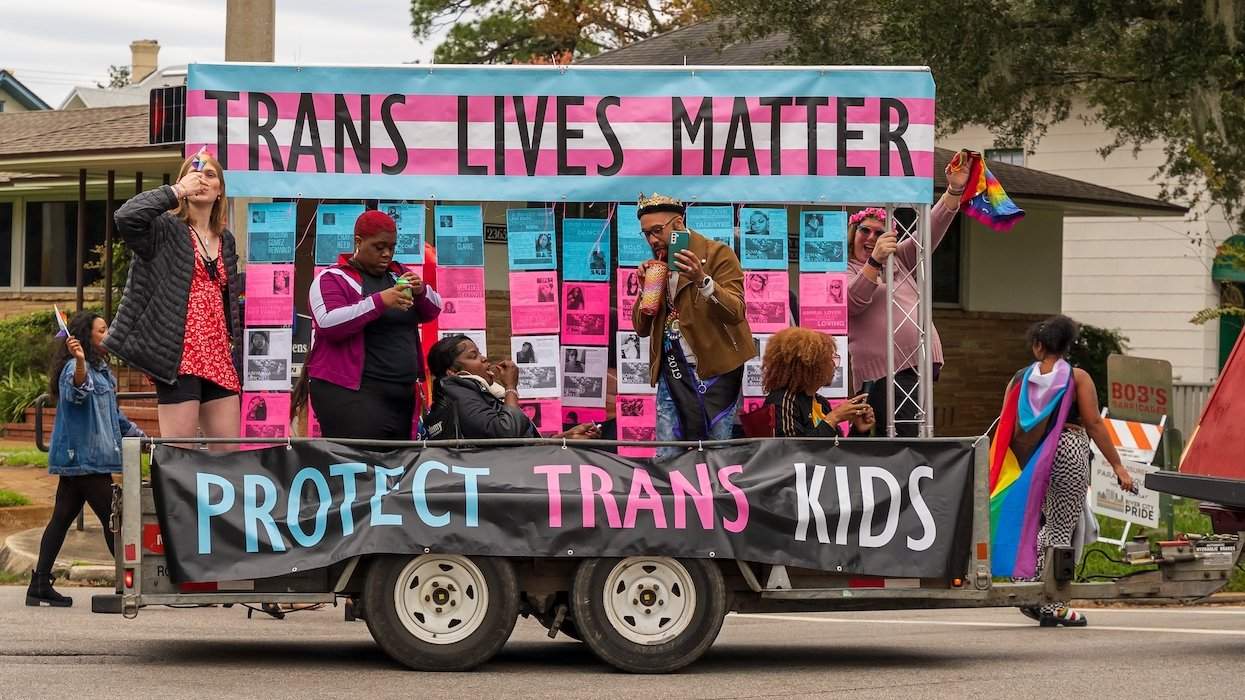A federal judge has declined to block enforcement of a Florida law that restricts gender-affirming care for transgender adults, even though the same judge has blocked the ban on gender-transition procedures for trans youth.
Senate Bill 254, signed into law by Republican Gov. Ron DeSantis in May, doesn’t ban such care for adults, but it prohibits the administration of gender-affirming treatment by anyone other than a physician, even though nurse practitioners are perfectly capable of providing the care, as they do with other treatments for other conditions.
The suit brought against the law, Doe v. Ladapo, says many transgender adults in Florida have to delay or forgo their care as a result, both because there are too few physicians to provide it and because some Floridians don’t live near a physician who does.
Two of the four adult plaintiffs who joined the suit say they have been unable to obtain hormone treatment from the providers they were seeing previously, and the two others say their scheduled gender-affirming surgeries were canceled by doctors who cited SB 254, even though it doesn’t ban such surgeries for adults.
But Judge Robert Hinkle of the U.S. District Court for the Northern District of Florida declined Monday to issue a preliminary injunction against the portions of SB 254 that affect adults, although he did so in June against its bans on puberty blockers and hormone treatment for minors with gender dysphoria. The suit was amended in July to include the adults challenging the restrictions on their care. A preliminary injunction would keep the law from being enforced while the suit is heard.
The plaintiffs have not shown they are likely to suffer irreparable harm if the law is not blocked, a condition for granting a preliminary injunction, Hinkle wrote in his order. “The challenged statute and rules do not prohibit adults from obtaining treatments of the kind the plaintiffs seek,” he wrote. “Two plaintiffs will be unable to obtain hormone treatment from their current providers. But despite the plaintiffs’ contrary assertions, they may be able to obtain the treatment from others. Two other plaintiffs say their scheduled surgeries were canceled and that the surgeons said the challenged statute was the reason. But even if the plaintiffs’ testimony about this is not inadmissible hearsay — an unlikely proposition — the surgeons’ statements, without a further explanation, do not tie their decision to anything a preliminary injunction would cure. The record does not show that a preliminary injunction would affect the surgeons’ willingness to perform the surgeries at this time.”
Another condition for issuing a preliminary injunction is the probability that the plaintiffs will succeed in proving their case. This probability is “significantly lower” since a three-judge panel of the U.S. Court of Appeals for the 11th Circuit, which covers Florida, Georgia, and Alabama, lifted an injunction against Alabama’s ban on gender-affirming care for trans youth, Hinkle wrote.
The plaintiffs in the Alabama suit filed a request Tuesday for the full 11th Circuit to reconsider the matter. A federal judge in Georgia last week lifted her injunction against that state’s law, which bans only hormone treatment for trans youth, citing the 11th Circuit panel’s ruling.
The plaintiffs in the Florida suit are represented by lawyers from GLBTQ Legal Advocates & Defenders, the National Center for Lesbian Rights, Southern Legal Counsel, and the Human Rights Campaign Foundation. The lawyers issued this statement:
“The state’s restrictions on well-established health care in SB 254 serve no purpose other than to intentionally prevent transgender people from receiving the care they need. This case is far from over and we will continue to take every legal step to challenge this law that takes away Floridians' ability to make important decisions about their own lives and hands it over to the government instead.
“We are preparing now for the trial in November at which we intend to lay out the full evidence of the state’s deliberate targeting of transgender Floridians through the harmful, arbitrary, and medically unjustified rules enacted in SB 254. We also encourage transgender Floridians and their families to seek out resources and take all the steps they can to get the essential medical care they need to live healthy and happy lives.
“Florida’s SB 254 is part of a broader landscape of laws that are hurting transgender people in Florida and across the country. We will continue to challenge these dangerous bans that deliberately single out transgender people for discriminatory treatment and ignore well-established medical research until they are permanently overturned.
“All of us who believe in fairness, science, and freedom must also keep fighting on every level to ensure people in Florida and across the country can live their lives free from draconian and unlawful attacks on their health and wellbeing.”
A total of 22 states have passed laws banning gender-affirming care for trans minors, but some of them remain blocked by courts. One, in Arkansas, has been struck down by a court, and that ruling is on appeal.
Pictured: Trans rights supporters at a Pride parade in Jacksonville, Fla.




































































Charlie Kirk DID say stoning gay people was the 'perfect law' — and these other heinous quotes